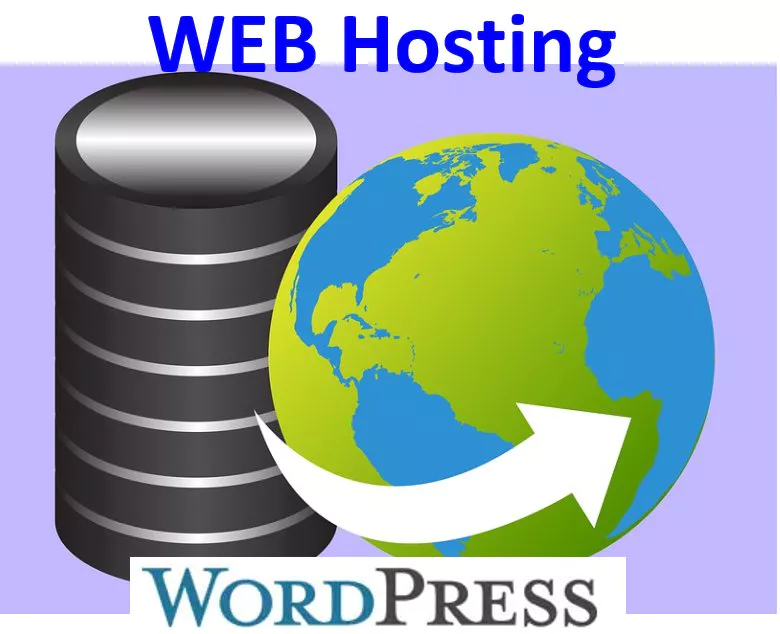Types of Web Hosting for WordPress
Web hosting is an essential part of building a website, and it’s crucial to choose the right hosting option to ensure your website runs smoothly. When it comes to WordPress, there are several types of web hosting options available. In this article, we will discuss the different types of web hosting for WordPress and their pros and cons to help you make an informed decision.

Types of Web Hosting for WordPress: Shared hosting is the most common type of web hosting for WordPress. As the name suggests, with shared hosting, multiple websites share a single server’s resources, such as CPU, RAM, and disk space. Shared hosting is generally the most affordable option, making it a popular choice for beginners or those on a tight budget.
However, the downside of shared hosting is that your website’s performance can be affected by other websites on the same server. If one website on the server experiences a spike in traffic, it can slow down the other websites on the same server. Additionally, shared hosting usually comes with limited resources, which can impact your website’s speed and performance.
Virtual Private Server (VPS) Hosting
VPS hosting is a step up from shared hosting, where you still share a physical server with other websites, but each website has its own dedicated resources. With VPS hosting, you have more control and flexibility over your hosting environment, and your website’s performance is less likely to be impacted by other websites on the same server.
VPS hosting is more expensive than shared hosting, but it provides better performance, security, and scalability, making it a suitable option for websites that have outgrown shared hosting.
Introduction to WordPress
Understanding WordPress Versions and Updates
Pros and Cons of Using WordPress
How to Choose a Domain Name for Your WordPress Site
Dedicated Hosting
Types of Web Hosting for WordPress: Dedicated hosting is the most powerful and expensive type of web hosting for WordPress. With dedicated hosting, you have an entire physical server dedicated solely to your website, providing you with maximum control, customization, and performance.
Dedicated hosting is the best option for large websites or those with high traffic volume that requires the maximum level of resources and security. However, dedicated hosting is the most expensive option, and it requires technical expertise to manage the server.
Managed WordPress Hosting
Managed WordPress hosting is a specialized type of hosting designed specifically for WordPress websites. With managed WordPress hosting, your hosting provider takes care of all the technical aspects of your website, including updates, security, backups, and performance optimization.
Managed WordPress hosting is the most convenient option for WordPress users who don’t have technical expertise or the time to manage their website’s technical aspects. However, managed WordPress hosting is more expensive than shared hosting and less flexible than other hosting options.
Cloud Hosting
Cloud hosting is a relatively new type of hosting that uses a network of servers to host your website instead of a single physical server. Cloud hosting provides better scalability, reliability, and performance than traditional hosting options.
Cloud hosting is a suitable option for websites that experience fluctuating traffic volume or have outgrown shared or VPS hosting. However, cloud hosting can be more expensive than other hosting options, and it requires technical expertise to manage.
Visit : https://wordpress.com
Summary
Types of Web Hosting for WordPress: Choosing the right web hosting option is essential for your WordPress website’s success. Shared hosting is the most affordable option, but it comes with limited resources and performance issues. VPS hosting provides more control and flexibility than shared hosting, but it’s more expensive. Dedicated hosting provides maximum performance and security but is the most expensive and requires technical expertise. Managed WordPress hosting is the most convenient option for WordPress users but is more expensive and less flexible. Cloud hosting provides better scalability and reliability but is more expensive and requires technical expertise.
Consider your website’s needs and budget when choosing a web hosting option for your WordPress site.